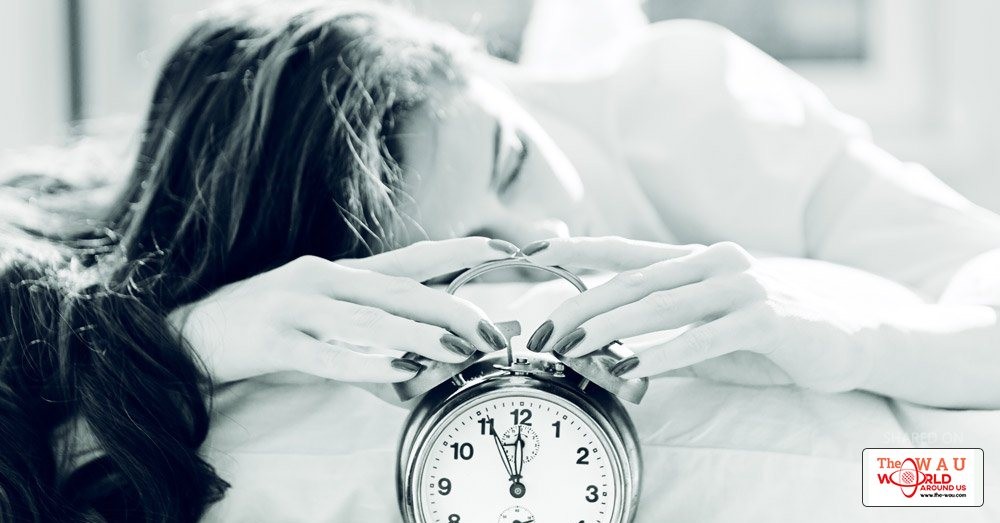As a notoriously sleepy person, I always dream of one day magically transforming into a morning person. While I'd love to get out of bed sans alarm, meditate, write in my journal, and eat breakfast all before sunrise, I'm far from that ideal morning.
My usual routine goes something like this: snooze button, sleep, snooze button, sleep, "leave me alone, cat," curse, curse, and scroll, scroll, before finally dragging myself out of bed 45 minutes later than I had planned, while still feeling more than half asleep.
It turns out that it's probably not my fault. Some people may just be genetically hardwired to be morning people, research finds. But since I haven't ordered genetic tests to know for sure if my morning-averse nature is in my DNA, I decided to see if there was something out there that could help change my ways. A wake-up fairy godmother, if you will. With so many alarms on the market designed for people just like me, I hoped that trying a handful might help me find something that would finally change my relationship with mornings once and for all. Here's what happened.
1.MY DAY STARTED ON A MORE POSITIVE NOTE.

When I found out that Gabrielle Bernstein, the uber-spiritual life coach and author, had an app to wake you up with daily affirmations, I figured it might be worth a try. I envision Bernstein as a perky ray of positivity in the morning and hoped the Spirit Junkie App might help me follow her lead and exude fewer cranky vibes in the a.m. (and I wouldn't complain if it gave me her hair, either.) I also felt good about trying it out since I'd read that affirmations aren't just a woo-woo gimmick. Research shows that self-affirmations can improve problem-solving skills when you're in a stressful situation, and some experts believe they can seriously improve self-esteem.
In my experiment with the Spirit Junkie App, I found that some of the affirmations ("I am a beacon for the light" and "I vibrate at the frequency of Love") didn't quite resonate and made me roll my eyes a little. But others ("Today I will be unafraid to be me" and "The better I treat myself, the better my life becomes") were food for thought that set a positive tone for the rest of the morning. And the peaceful tones weren't as jarring as some alarms can be, which made waking up as peaceful as a morning-hater can hope for. My only complaint: The app doesn't sound an alarm if you have your phone on silent, which meant if I wanted to wake up to the Tibetan bowl tone I set for my alarm, I also had to wake up to the sound of the occasional super-early morning text from East Coast family and friends.
2.AND THEN IT STARTED ON A MORE STRESSFUL ONE.

Next up was an alarm that is a bit on the opposite end of the spectrum called the Wake N Shake Alarm Clock. When the alarm sounds, it's time to shake your phone as hard as you can until you've successfully filled up the shake meter. If you slow down your (somewhat suggestive) hand motions, you'll lose progress and have to shake even longer, all while the noise of your choice blares loudly from your phone speaker. I chose a robot that warned me (in a robot voice) that it was time to wake up. Oh, and there was also an option for strobe lights! Who doesn't want to wake up to a bedroom disco—with a robot—at 7 a.m.? It turns out, that would be this girl. That said, this alarm seriously wakes you up, as long as you don't mind the stress of it.
"Stress is not a fantastic way to begin the day," says W. Chris Winter, M.D., author of The Sleep Solution: Why Your Sleep is Broken and How to Fix It. While you probably wouldn't want to wake up to a shaken frenzy every single morning, there's no harm if you're in a situation where you really can't oversleep, he says. For example, fewer things are more stressful than missing a flight because you overslept—or missing out on sleep because you're afraid you won't get up on time for that flight. With an aggressive app like Wake N Shake in your alarm clock folder, you won't have to stress it.
3.A GENTLE NUDGE HELPED ME WAKE UP DISCREETLY.

When it comes to wearable technology, one thing that always intrigued me more than counting steps was the alarm feature. I wondered if feeling a buzzing on my wrist would wake me up more efficiently than an audible alarm. So, I tried out the alarm features on the Apple Watch Series 2 and Fitbit Blaze. It turns out that the buzz did wake me right up and was less jarring than I expected. I also liked that the FitBit tracked my sleep quality, which helped me notice a direct correlation between my exercise habits and my sleep. (Shocker: I slept more soundly on days I moved my body most.)
The best "hidden perk" of a wearable alarm was that it allowed me to keep my phone out of my bedroom. This is something I've been trying to do to avoid mindless late night and morning scroll sessions, which is a good idea for both sleep quality and mental health—and is a big time saver, too. Plus, wearables might be useful if you're trying to get up and out in the morning without disturbing your bed partner, says Winter.
4.I LEARNED A LOT ABOUT WHAT MY BODY REALLY DOES ALL NIGHT.

Let's face it: Waking up when you're deep in dreamland is no fun. That's why Sleep Cycle, an app-based alarm, is designed to analyze your sleep cycles and wake you up at the time when you're in your lightest sleep state. First, you set a desired wake up time, then place your phone facedown on your nightstand with the microphone facing your bed. The app uses the microphone to pick up the sounds of you rustling around in bed to determine how deeply you're sleeping and calculates your cycles based on this. The alarm is designed to sound within 30 minutes of your target wake up time when the app has determined you are in your lightest sleep state.
In theory, this should all make waking up feel more natural, but it just felt like I was being randomly woken up with the all-too-familiar urge to snooze. The alarm would likely have more promising results on someone who is at least sort of a morning person and is merely looking to optimize their sleep habits. But even though Sleep Cycle didn't work like a dream for me, I learned valuable information about my sleep over just a few days. I might not have remembered waking up at 3 a.m., but Sleep Cycle knew all about it. Seeing my cycle drawn out on a graph was a really cool visual that helped me better understand what my body is up to in the middle of the night. And with options to select if I exercised, consumed caffeine, or felt stressed out that day, I was able to draw lines between my sleep quality and my lifestyle, which has helped me incorporate some sleep-friendly changes into my routine. (Hit the reset button—and burn fat like crazy with The Body Clock Diet!)
5.I WAS UP WITH THE (FAKE) SUN.

Waking up is especially rough for me in winter, as the sun doesn't rise in Seattle, where I live, until close to 8 a.m. And even then, sunlight isn't often streaming in the windows. Since I strive to be out of bed by 7 a.m., that means long months of waking up in the dark. But you don't have to live in the Pacific Northwest to benefit from the Philips Wake-up Light, which gradually increases in brightness over 30 minutes, starting with a soft red color and transitioning to an orange light, until finally shining a bright yellow light at your set wake up time. This is the one alarm I'm still using every day, and I'm almost always (at least a little) awake by the time the alarm sounds. There are pleasant natural sounds to pick from, but I chose to set my alarm to my favorite radio station, KEXP. Just like the light, the sound gradually builds, so it doesn't blast your ear off right away. And since I'm already awake, the music is a welcome push that motivates me to get up and moving.
While everyone will have different experiences with an alarm based on their body, sleep habits, and preferences, Winter says an alarm that mimics the sunrise like this might be especially beneficial for someone like me who lives in an area that tends to be on the dark side in the morning, or for someone who works the night shift and has to sleep during the day and wake themselves up at night.
"To start your day going from a very dark environment to a light environment is a very natural way for you to wake up," he says, because your circadian rhythm is closely tied to light. "This starts to send a signal through your eyes back to your brain that says there's more and more progressive light available now, and that's going to create a situation where your brain stops making (the sleep hormone) melatonin."
In science speak, the Wake-up Light acts as a zeitgeber, explains Winters, which is a cue that our brains use to help understand that it's morning and time for our internal clock to reset. Pretty soon, your body will learn that 7 a.m., or whenever, is your wake up time, even in the absence of a natural sunrise.
The takeaway? While I'm still no Disney princess in the morning, I've learned that with the right tools, waking up can be a little less terrible.
Share This Post












